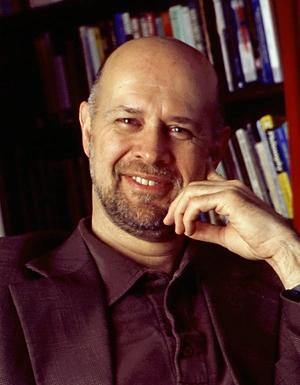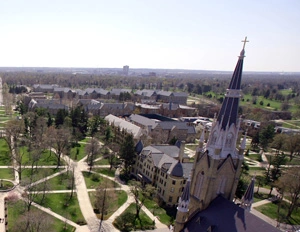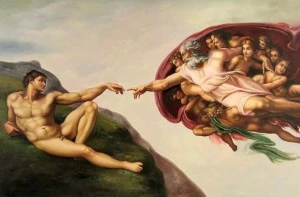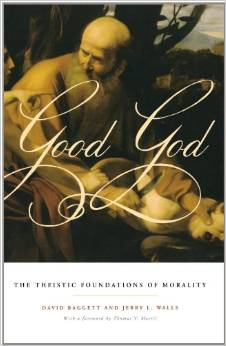I had the immense privilege to interview historian, sociologist and Christian apologist David Marshall on militant atheists and their arguments. I truly hope you’ll appreciate it!
Lotharson: Hello David, thank you very much for having accepted my invitation. Could you please sum up your background for my readers?
David Marshall: Sure. I am from a Christian background, and grew up in Seattle. My academic background involves a lot of study of languages and research in history and Asian cultures, culminating in a PhD for which I offered what I believe is the best Christian model of religions, which I call “Fulfillment Theology.” I’ve written five books, edited another, and contributed to others, my most popular so far being “True Son of Heaven: How Jesus Fulfills the Chinese Culture” and “The Truth Behind the New Atheism.” (But the meatiest is Jesus and the Religions of Man.) I am presently writing two other books actively, and three more passively. Each is on a very big subject; I will try not to be glib. :- )
Lotharson: So, you seem to have quite a large field of interest 🙂 What rose your passion for the intellectual arguments between Christians and atheists?
David Marshall: I was going to blame C. S. Lewis, in my misbegotten youth, but then a line from a country music song came to mind, “Heck it could be my fault.” There’s a little atheist inside of me, and it’s easiest to squelch him when the big atheists outside of me throw up such softball challenges to my Christian faith. Also I agree with Clement of Alexandria, who perceived that there was some truth in almost every school of thought — truth that is fulfilled best by Christ.
On militant atheism and religious fundamentalism

Lotharson: Your fascinating views on the relationship between God’s revelation in Christ and other religions will (hopefully) be the topic of a future interview. Right now, I’m interested by what you wrote on the New Atheists. Could you summarize what the “New Atheism” is? Is it (more or less) a synonym for “anti-theism” or “militant atheism”?
David Marshall: Atheists themselves differ on whether or not to accept or even glory in the term “The New Atheism.” Some say there’s nothing new about their views, and in a sense, I agree: the tone adopted by Richard Dawkins is very like that of the Left Hegelians in your own native Germany back in the mid-19th Century, culimating with Karl Marx. But I see four factors as distinguishing this wave: (1) Reaction to 9/11, along the lines of “That nasty Taliban! Now how can we use revulsion against radical Islam to dump on Christianity as well? I know! We’ll lump them all in the same bag!” (2) Particular concern over the supposed threat American Christian poses to democracy. (3) Focus on or exageration of the dark side of Christian history, “Hitler’s Pope,” that kind of thing. (4) Drawing on radical “historical Jesus” material, from the Jesus Seminar and Bart Ehrman, to more fringe characters like Hector Avalos, Robert Price and Richard Carrier.
Lotharson: A small correction: I’m a Germanic Frenchman from a historically German-speaking French region 🙂
So, is it fair to say that the New Atheism (or anti-theism) can be summed up by the two following sentences:
1) Religious beliefs are false
2) Religious beliefs are bad and ought to disappear?
David Marshall: Quite so.
Belligerent secularism and nasty rhetoric

Lotharson: Okay. How does this play out in terms of rhetoric?
David Marshall: I am trying to think of a prominent atheist who identifies with that movement, who is polite, and really listens to the other side. Is that what you’re wondering?
Lotharson: Yeah kind of 🙂 Do you know striking examples of rude and bullying behavior which are characteristic of the whole movement?
Or examples of famous New Atheists calling their followers to use an aggressive and nasty rhetoric?
David Marshall: Sheesh. Read my blog post, “PZ Myers, Guru of Hate,” if you can stomach that sort of thing. That charts one internal conflict on their side — I take out all the swear words. It is tacitly assumed in many quarters that the real problem with such nastiness is that it is directed at fellow unbelievers, rather than the real enemy, us.
Lotharson: And by “us”, they mean ALL religious believers, right? Even progressive Christians opposing the Religious Right are viewed as their enemies, am I correct?
David Marshall: Of course “Gnus” are a diverse lot, and not all are as vitriolic as Dr. Myers’ followers tend to be. But yes, Richard Dawkins, in his (relatively) more civilized way, goes out of the way to emphasize that liberal Christians are also a serious problem, as do such people as Greta Christiana.
Lotharson: Yeah, they argue that the existence of moderate and peaceful religious believers NECESSARILY cause the existence of nasty fundamentalists and Islamists.
So, according to them the evil has to be cut at the root.
Do they have strong historical and sociological arguments for backing up this claim?
David Marshall: Well, of course not. The best they do is vaguely cite sociologist Phil Zuckerman, who is fond of Denmark, as who isn’t besides Hamlet? But Zuckerman himself is more careful, and shows (without meaning to) that a lot of the success of the societies he deems as most successful, derives historically from their Christian roots. (I challenged him on this in person, and he did not deny it, being an honest scholar.)
Lotharson: And there is one thing they don’t take into consideration: the greater happiness of Denmark in comparison to religious America might very well be due to factors unrelated to religion and atheism, such as their much more SOCIALIST economy and social system.
Is it fair to say so?
David Marshall: I wrote an article some years ago in which I gave some 20-25 problems with such arguments. They are multiply flawed in too many ways to give a simple summation: the popular versions of such arguments are junk scholarship. As a Burkean conservative with a father who owned an apartment with welfare Moms, though, you’ll have to torture me to confess the superior merits of the Welfare State. :- )
Lotharson: Okay, I won’t insist then 🙂
On sociological studies on the benefits of “Religion”.
I generally find it pretty frustrating that in most sociological and historical studies comparing religion with lack of faith, religion (as a whole) is directly compared with atheism (as a whole).
Given the HUGE diversity of atheists and religious believers out there, I view these studies as providing us with very few useful information.
I think that a good study would compare a lot of groups of different believers with different atheists, such as:
1) Conservative Catholics
2) Liberal Catholics
3) Calvinists
4) Charismatic Christians
5) Mystical Muslims.
6) Godless communists
7) Secular Capitalists
8) Buddhists
and so on and so forth.
This would really allow us to learn more about the subject, and I’m sure that we could find out that certain religious groups fare much better than others, and that the same thing holds for the very diverse atheistic groups present in our world.
So the question should not be: “Is religion (ON AVERAGE) better than atheism (ON AVERAGE) in terms of societal happiness, but rather “What are the impacts of the many specific worldviews out there?”
Do you agree?
David Marshall: Yeah. I also dispute the usual definition of “religion.” Peter Berger pointed out that the term is defined in functional as well as substantive ways: what Paul Tillich called an “ultimate concern” being to me the best definition. Everyone has an ultimate concern. And no, a few decades after the Marxist holocaust, we can’t just sweep those crimes under the rug, either. Nor do they seem to have been total aberrations.I also like the definition of Christianity as meaning, “We’re all bastards, but God loves us anyway.” Christianity PREDICTS evil by its followers. But I argue historically that the Gospel has in fact utterly transformed the world for the better — and the Bible predicts that, too.
The intellectual depth of anti-theism
 Lotharson: The New Atheists also pretend we can know beyond any reasonable doubt that God does not exist, and most of them seem to also believe that we can be pretty sure that matter is the ultimate reality. What do you think of the intellectual depth of the arguments they deploy for showing this?
Lotharson: The New Atheists also pretend we can know beyond any reasonable doubt that God does not exist, and most of them seem to also believe that we can be pretty sure that matter is the ultimate reality. What do you think of the intellectual depth of the arguments they deploy for showing this?
David Marshall: Miracles happen. God works in the world. Deal with it.
Lotharson: Okay, so are they as mighty as a fundamentalist proclaiming these three sentences without any evidence? 🙂
David Marshall: Well, of course it’s hard to come up with evidence for a negative. And SOME New Atheists try fitfully to deal with the positive evidence for Christian miracles and God’s work in the world. (John Loftus‘ friends are examples.) But they tend to stay near the shallow end of the pool, and don’t seem to know much about that evidence, really. I’ve never seen one analyze Craig Keener‘s massive study of miracles around the world, for instance — not that it isn’t vulnerable in spots. Some do try to undermine the Gospel narrative, and arguments for the resurrection — though the more serious arguers seem to mostly predate the New Atheist movement, and don’t seem often to identify with it. Richard Carrier has just published a book trying to prove Jesus never lived — he wishes to make that position intellectually respectable. He does at least have a PhD in Roman history — the history of science — from Columbia, and reads a lot, even if he doesn’t always report what he reads very circumspectly.
Lotharson: Of course, this raises a lot of questions about miracles we don’t have the time to go into here.
The nature of “faith”.
But I think this leads us to wonder about how the New Atheists view “faith”. What are your own experiences with this and how does it relate to the way you (and most of your Christian friends) understand “faith”?
David Marshall: They universally misunderstand it. Even those who know better. It’s a fascinating sociological phenomena. The most recent best-seller that does this is Peter Boghossian’s A Manual for Creating Atheists — the whole ingenious work is based on the patently absurd notion that by “faith,” Christians mean “believing without any evidence.”
Lotharson: And why do you view this notion as “patently absurd”?
David Marshall: Of course they don’t have any evidence for that, because they haven’t bothered to do any research. I have. (See our recent book, True Reason, including one chapter with Dr. Timothy McGrew, also the relevant chapter in The Truth Behind the New Atheism.)
It’s the height of irony — every single New Atheist bases his critique of Christianity on the objection that Christians demand faith without checking the facts first — but none of them bothers to check the facts about THAT first. Alister McGrath and I both highlighted this irony already in our books on the New Atheism, which were among the first to come out, but our objections haven’t stopped the flood or even quelled it a little.
Lotharson: How do you personally see “faith”?
David Marshall: Christian faith means “Believing and acting upon what you have good reason to think is true, in the face of existential difficulties.”
Lotharson: It goes without saying it is a lot harder to argue against this than against the straw man they attack. Is it fair to say that the New Atheists PICK AND CHOOSE the worst and weakest examples of religious believers and describe them as if they were characteristic of religion AS A WHOLE?
David Marshall: Dawkins is famous for this. Like the Pharisee Jesus spoke about who seeks the world for a convert, he flies across continents looking for the kookiest Christians he can find – founders of hell houses, terrorist wannabees, semi-literate spokepersons for obscure political fronts — then reports them as typical cases of the species. For a zoologist, he’s empirically lazy to a remarkable degree.
On Anti-theism and atrocities.
Lotharson: Lol. I think this should lead us to wonder whether HIS PARTICULAR brand of atheism is as harmless as he professes.
I don’t think that atheism (understood as the belief there is no supernatural world) has caused atrocities, in the same way I don’t believe that theism (the belief there is a God) has caused atrocities in and of itself.
BUT I do believe that anti-theism (the belief that all religions OUGHT to disappear) has plaid a major role in atrocities committed by secularist regimes in Russia and in China against religious people and clergy persons.
Do you think it is a balanced consideration of the situation?
David Marshall:It’s a very complex question. I have a chapter giving my own analysis of “Why Marx went wrong” in Jesus and the Religions of Man. I think his rejection of Christianity and of God was very important, and it impacted his morals in complex ways — I argue that communists had THREE moral systems, for different sets of people. But I also argue that the most deadly facet of Marxism-Leninism was the god it worshiped — the self — even more than its rejection of God, perhaps. Though of course the two go together. As someone said of Tolstoy, I think, he and God in the same heart were like two bears in the same cave. Marx wanted the cave for himself, and so did his chief followers.
The best work on this subject is David Aikman’s Atheism in the Marxist Tradition. Unfortunately it is an unpublished doctoral dissertation, but can be obtained by interlibrary loan.
Lotharson: When I present anti-theism in this way, some of its proponents get completely infuriated.
They say that the New Atheism does not seek to destroy religious beliefs but only to put an end to “religious privileges”.
Could it be really the case?
David Marshall: Again, I fundamentally disagree with the assumed definition of “religion” here. But many New Atheists are quite outspoken in saying they want to rid the world of religion — though not violently, through “education” in various senses. I could give numerous quotes, especially if I were in my library in the US, rather than in central China, right now.
But no doubt many atheists hold more modest ambitions. They however tend not to identify themselves as Gnus (New Atheists).
John Loftus and The Outsider Test of Faith
Lotharson: Okay. What else is there to be said about the New Atheism?
David Marshall: I’m glad for the challenge. Anything they say that is true, is useful. I am presently writing a book entitled, “How Christianity passes the Outsider Test,” turning a popular Gnu argument — promoted by John Loftus — on its head, to offer four more or less new arguments for the Christian faith, some of which I think have a great deal of force. I’m so glad John brought the subject up again.
Besides which, we need our critics. Hug a New Atheist, but also figure out why he’s wrong and tell him. (Most Gnus are men, sorry.)
Lotharson: Before I’ll stop stealing away your precious time 🙂 could you please briefly explain what the Outsider Test of Faith is and what is your own personal take on it?
David Marshall: Oh, Gee, that’s the book! But you can get an abridged version in a chapter of True Reason.
The basic idea is, we should look at Christianity from an objective, outside perspective and stop being hoodwinked by our (assumed) Christian conditioning.
The truth — the real, “inside” story of Christianity — is amazing, and I don’t think has ever been told quite like this. To put it in the vernacular, I am totally pumped about this book.
Lotharson: Thanks for this and for everything David! I wish you all the best for your next endeavors and am looking forward to your new book.
Thematic list of ALL posts on this blog (regularly updated)
My other blog on Unidentified Aerial Phenomena (UAP)














